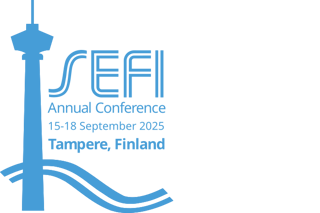Speakers
Keynote speakers

Karl-Erik Michelsen
Title of Keynote
Political power of technology – should we start teaching political science for engineering students?
Biography
Karl-Erik Michelsen, Professor (emer.) in science, technology and modern society at LUT University. Michelsen’s research interests have focused on innovations, large technological systems, and scientific and technological cultures. Michelsen has educated both business and engineering students at LUT University to understand how innovations are made and how science and technology has become the one of the most powerful force in modern societies.

Tom Børsen and Shannon Chance
Title of Keynote
Towards socially responsible, post-normal and reflexive engineering ethics education
Biographies
Tom Børsen, Associate Professor at Aalborg University, has transformed engineering education by integrating social sciences, humanities, and ethics into technical curricula. As co-developer of the Techno-Anthropology program, he has pioneered Problem-Based Learning strategies that prepare engineers to tackle real-world challenges with interdisciplinary insight and ethical awareness. His initiatives, ranging from online onboarding to industry-engaged case work, have enhanced collaboration, adaptability, and ethical reasoning for over 500 graduates now working worldwide. Through active engagement in SEFI’s Ethics Special Interest Group and co-editing The Routledge International Handbook on Engineering Ethics Education, Tom’s influence extends internationally, shaping best practices for socially responsible and post-normal engineering education.
Shannon Chance, Lecturer and Programme Chair at TU Dublin and Honorary Professor at University College London, mentors and builds community across engineering education research globally. In chairing the Research in Engineering Education Network, Shannon expanded representation of the Governing Board to reflect global demographics, established capacity-building programmes, and co-organized innovative community-building activities during the pandemic. She leads researcher development programmes via SEFI, deputy edits SEFI’s European Journal of Engineering Education, and has spearheaded the publication of four special-focus issues and The Routledge International Handbook on Engineering Ethics Education, mentoring others through the publication process and bringing focus to pertinent issues: ethics and environmental sustainability, student development, socio-cultural diversity, and teaching abstract concepts to students. As co-developer of architecture degree programmes for both NewGiza University and Hampton University, Shannon has helped shape the educational landscape for thousands of students across Egypt and North America.

Pleun Hermsen
Title of Keynote
Reflection re-engineered
Don’t ask students to reflect.
Create the conditions for Reflection ∞ to emerge.
Biography
Pleun Hermsen is a versatile education professional at TU Delft. Originally, she started her career as a trauma surgeon, but her love for education led her to a change of direction. She developed extensive experience in teaching, instructional design as well as educational management in (medical-)technical education.
Her non-traditional profile within engineering education has inspired her to focus on reflection for engineers as a catalyst for learning deeper, more broadly, and more comprehensive. Her view is to merge disciplinary education with broader development of the students and staff. To materialize those intentions, Pleun founded and spearheaded a TU Delft wide program, the Reflective Engineer. There, her team co-created many educational innovations with teachers and students.
Reflective Engineer interventions are guided on the principle that reflection is easier said than done. Instead of asking people to reflect we should create the conditions where reflection can emerge. Reflection helps engineers to unravel their own perspective, understand, and appreciate other peoples’ perspective for students to become better equipped at dealing with complexity and can become responsible engineers in today’s socio-technological society.
Goals of these interventions are diverse, ranging from giving and receiving feedback, to study success, ethics, collaboration, etc. One of these interventions is an open-source board game called Campfire Talk that facilitates unsupervised peer-to-peer coaching.
The work in the Reflective Engineer program has resulted in an evidence-informed and practice-based framework that supports educational professionals in creating the conditions for meaningful reflection in their own practice.
Pleuns work is supported by two Educational Grants from the prestigious Comenius network.

